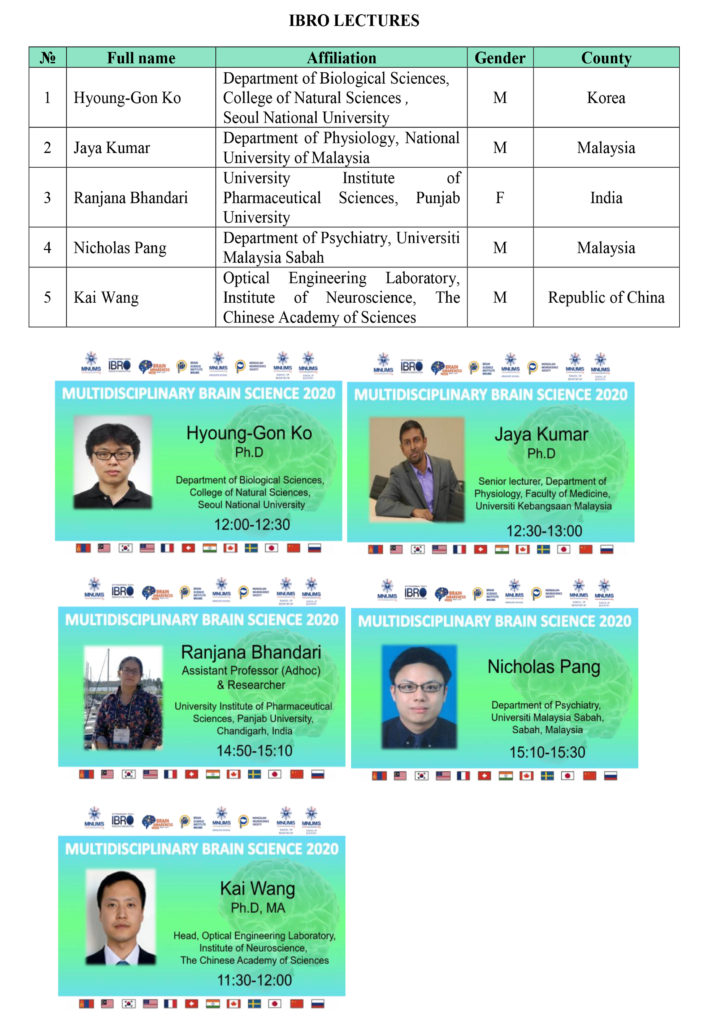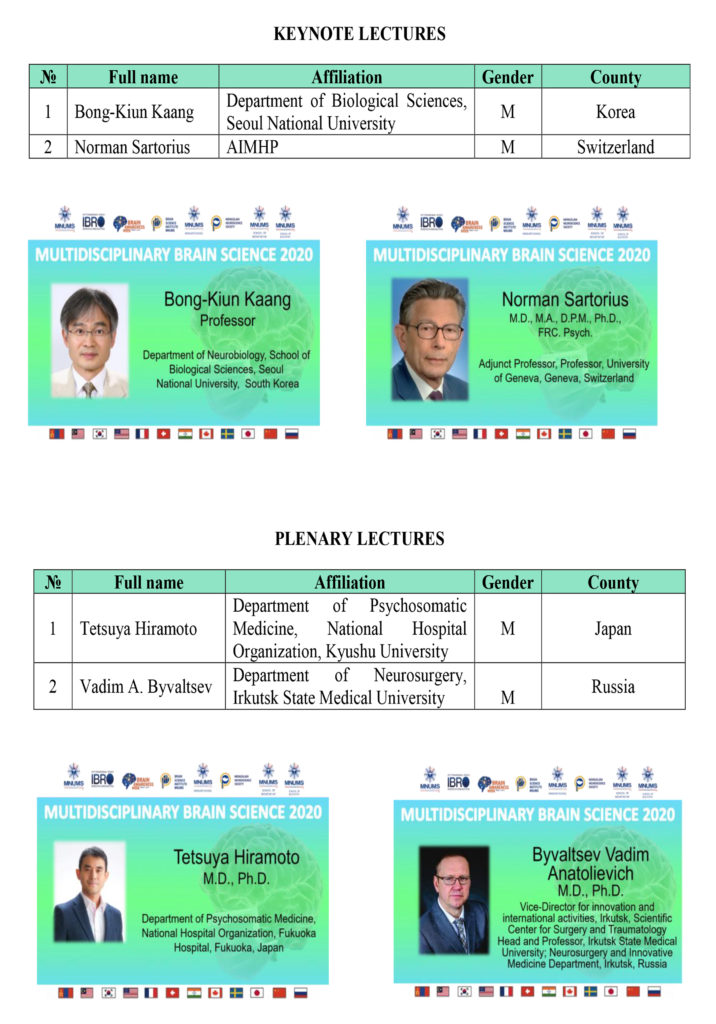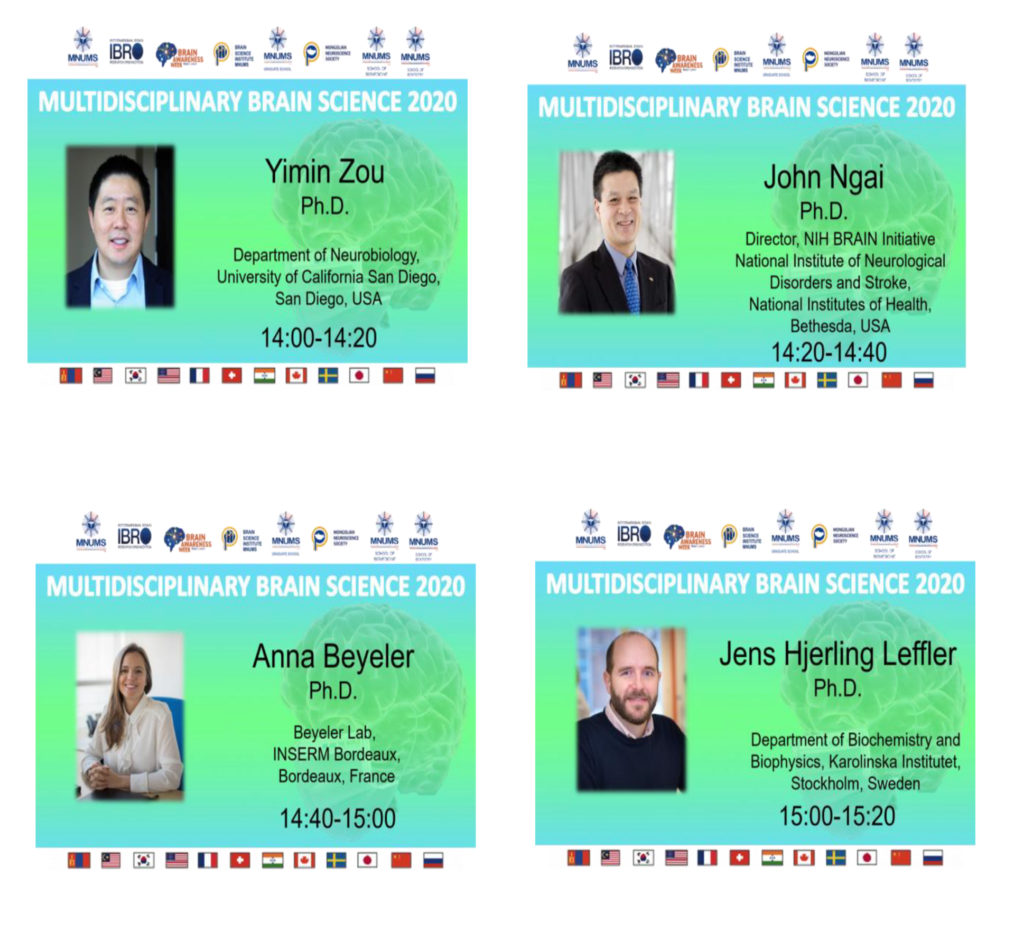The Annual Meetings of Mongolian Neuroscience Society has become an umbrella-conference for all the scientists who work in brain-related areas in Mongolia, to promote brain science and increase awareness of the field in the country. Due to the COVID-19 pandemic, the 7th Annual Meeting of Mongolian Neuroscience Society has been organized as a blended conference that offers both on-site and online attendance. Eventually, it brought together 98 on-site attendees and 2.4K online watchers this year. There were 17 invited lectures by international speakers from 11 countries including Canada, China, France, India, Japan, Korea, Malaysia, Russia, Sweden, Switzerland, and the USA, as well as 16 local presentations. It was divided into 6 sessions including Keynote Lectures, Plenary Lectures, IBRO Lectures, the International Symposium of Neuroscience, Public Lectures, and oral presentations. The official opening of the meeting was started by the speeches of Professor Tsolmon Jadamba, the President of the Mongolian National University of Medical Sciences, Dr. Battuvshin Lkhagvasuren, the Director of Brain Science Institute, and Dr. Damdindorj Boldbaatar, the Dean of Graduate School of MNUMS. On Day 1, Professor Bong-Kiun Kaang and Professor Norman Sartorius have delivered the admirable keynote lectures, followed by the plenary lectures from Japanese and Russian scientists. The IBRO lectures were presented by Drs. Hyoung-Gon Ko, Jaya Kumar, Kai Wang, Ranjana Bhandari, and Nicholas Pang. On Day 2, the International Symposium on Frontiers of Neuroscience provided the most updated information that covered the current areas of interest in brain science. International speakers used English for the presentations that was simultaneously interpreted to the audience by our local faculties.
Public lectures on brain health offered special lectures on mental health and neuroscience for general population.
The conference included 17 invited lectures by international faculties and 16 domestic presentations.
The event we proposed had to be shifted from an on-site event to a blended conference that includes both on-site and online attendance due to the COVID-19 measurements. Although Mongolia has been successfully preventing the pandemic since the outbreak, the international speakers could not attend the meeting because of the global changes in travel restrictions and lockdown measurements. Accordingly, we held the meeting by preparing several halls for small groups equipped with virtual conference tools. Following the hygiene rules, we also provided sanitary kits for all the on-site participants and staff. All the IBRO lecturers were available to present their lectures online using the Zoom app. Their lectures were transmitted live via Facebook too. Surprisingly, online lectures have reached more than 45 thousand people and have been watched by 2.4 thousand people. It was not easy to provide seamless technical conditions for live streaming due to our inexperienced technicians and poor quality of video conference tools. But overall, it was a great success for us because the event along with the IBRO Associate School that held prior to the Annual Meeting gained significantly more public attention than ever before. It was the first and largest scientific meeting held during the pandemic in Mongolia. Brain Science was one of the trends for the week. We have been asked to give interviews to many TVs, newspapers, and public journals including the National Broadcasting Television and Radio, the largest media channel in Mongolia.
The goal of the event was to increase awareness of brain science and promote it in the country. The event offered a unique opportunity for our audience to get updated with current advances in brain science by global and regional experts in neuroscience, particularly during the turbulent time of the pandemic. We are truly grateful for the generous support by IBRO that made it possible to hold the event successfully.







